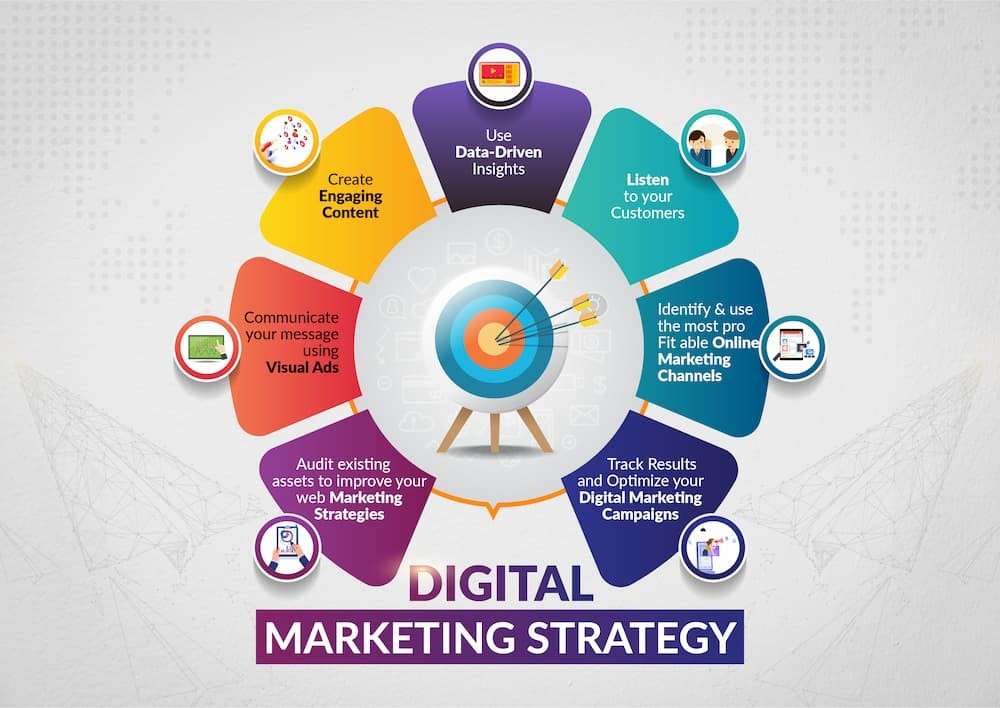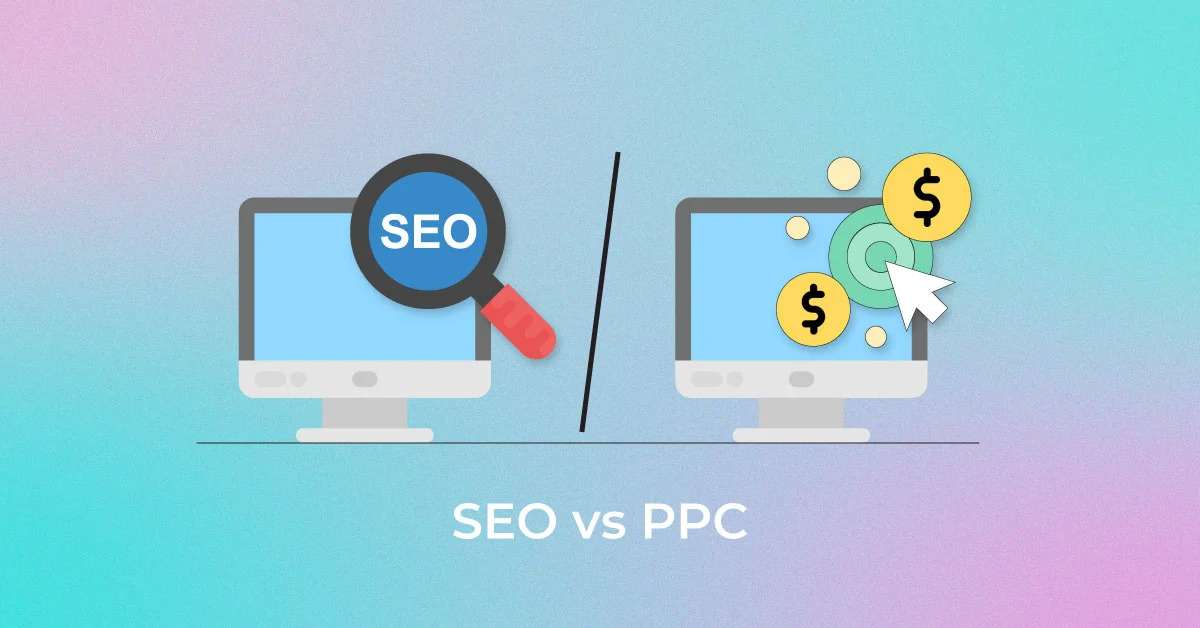Digital marketing has become an essential component of any successful business strategy. With the rapid growth of internet and mobile device usage, digital platforms provide invaluable opportunities to reach and engage with target audiences. Developing an effective digital marketing strategy is key for companies looking to acquire new customers, drive sales, and stay ahead of the competition. This comprehensive guide will examine the key components of a winning digital marketing strategy for 2023.
Defining Goals and Objectives
The first step in crafting a digital marketing strategy is to clearly define your goals and objectives. What are you hoping to accomplish through your online efforts? Common goals include:
- Increasing brand awareness
- Driving web traffic
- Generating leads/sales
- Engaging customers
Your goals should be specific, measurable, achievable, relevant, and time-bound. Defining your goals will dictate your strategy and help measure success.
Researching Your Target Audience
Your strategy should revolve around your target audience. Conduct thorough market research to gain key insights into your ideal customers, including:
Demographics
Age, gender, income level, location, education level, etc.
Psychographics
Interests, values, lifestyle, buying behaviors, etc.
Pain Points
What problems or challenges does your audience face? How can you help solve them?
Media Consumption
Where does your audience spend time online? Which platforms and devices are most popular?
Choosing Marketing Channels
Armed with an understanding of your goals and target audience, you can determine which digital marketing channels will work best. Typical options include:
Social Media
Platforms like Facebook, Instagram, Twitter, LinkedIn, Pinterest, etc. allow you to reach and engage with your audience through organic and paid tactics.
Content Marketing
Blogging, videos, ebooks, and other informative content help attract and convert website visitors.
Email Marketing
Regular emails like newsletters and promotional messages help nurture leads and drive repeat sales.
Search Engine Optimization (SEO)
SEO helps people find your website via search engines like Google by ranking high for relevant keywords, use backlink to website.
Pay-Per-Click (PPC)
PPC advertising like Google Ads helps you reach people as they search for products or services related to your business.
Crafting Your Brand Story
Your digital presence should clearly communicate your brand story. This includes details like:
- Company mission and values
- Product/service offerings
- Unique selling proposition
- Brand personality, tone, and voice
- Visual branding like logos and colors
Consistency across channels helps reinforce brand recognition and trust.
Creating Conversion Paths
Your strategy should map out the path you want visitors to follow from initial awareness to becoming a customer. This conversion funnel should move them through stages like:
Awareness
Attracting visitors through relevant content
Interest
Engaging visitors and nurturing leads
Evaluation
Helping prospects make purchase decisions
Conversion
Encouraging visitors to become customers
Retention
Developing loyal patrons who buy again
Testing and Optimization
Digital marketing success requires continually testing different strategies and optimizing based on results. Track meaningful metrics like clickthrough rates, time on site, and conversion rates. Improve underperforming content and double down on what works.
Executing Your Digital Marketing Plans
With a comprehensive strategy in place, it’s time to execute. Stay organized and maximize results with these tips:
Manage Timelines and Budgets
Plot tasks on editorial calendars and track budgets to keep initiatives rolling out smoothly. Assign responsibility and accountability.
Automate When Possible
Leverage tools like Hootsuite, Buffer, and MailChimp to schedule social media, deploy content, and send emails.
Monitor Progress
Revisit analytics frequently. Are you hitting targets? If not, figure out why and adjust quickly.
Adapt to Changes
Stay on top of digital marketing trends, platform algorithm updates, and new technologies so you can fine-tune strategy.
Foster Collaboration
Digital marketing touches many teams like IT, analytics, content, sales, and customer service. Facilitate open communication and alignment.
Maintain Quality Content
Well-written, relevant content helps fuel all digital marketing channels, so prioritize creating useful resources.
Executing a digital marketing strategy effectively takes significant coordination. By following an agile approach, brands can maximize their presence across channels.
Measuring the Success of Your Digital Marketing
How will you know if your digital marketing strategy is working? Key metrics to track include:
Website Traffic
Higher visitor numbers indicate greater awareness and interest. Monitor monthly trends for growth.
Leads/Sales
These conversion metrics reveal if your strategy is driving revenue. Tie digital efforts to CRM.
Engagement
Are people commenting, sharing, subscribing or interacting with your content? Engaged audiences signal quality marketing.
Brand Mentions
More online references mean greater reach and authority. Set up alerts to monitor brand visibility.
Customer Satisfaction
Survey customers on their digital experience. Use feedback to improve.
ROI
Calculate return on investment by comparing digital spend to tangible business results like revenue.
Analyze metrics regularly to determine winning strategies worth expanding and problem areas needing change. Results inform smart budget and resource allocation.
Digital Marketing Strategy Best Practices
Crafting an effective, results-driven digital marketing strategy requires following certain best practices:
Set Measurable Goals
Well-defined KPIs provide focus and allow you to evaluate success.
Map the Buyer’s Journey
Understand exactly how customers progress from awareness to purchase so you can guide them through it.
Position Your Brand Purposefully
Ensure your brand story resonates with your audience but stands apart from competitors.
Prioritize Mobile
With mobile device usage continuing to rise, optimize content for smartphones and tablets.
Focus on Website User Experience
Your website experience can make or break conversions. Test and improve it continuously.
Invest in High-Quality Content
Informative, engaging content earns attention, sharing, links, and loyalty.
Leverage Data for Insights
Analytics reveal who your audience is, how they interact with you, and where you need improvement.
Adopt an Agile Approach
Continually test new strategies and platforms while refining existing ones. Adapt quickly.
Automate for Efficiency
Leverage technology like AI where possible to streamline and scale activities.
Following these best practices requires significant time and resources. But the investment pays dividends through more qualified traffic, lower cost-per-lead, and higher profits.
Conclusion
In today’s digital landscape, implementing a smart digital marketing strategy is no longer optional for businesses – it’s essential. Following the steps in this guide will help you gain greater visibility, engage more customers, and maximize sales. Define your goals, tailor efforts to your audience, choose the right marketing channels, create conversion funnels, develop high-quality content, execute plans efficiently, and optimize based on data. With a strategic, results-oriented approach to digital marketing, any brand can thrive online.
Frequently Asked Questions
Q: What are the most important elements of a digital marketing strategy?
A: The most critical components are identifying goals, researching your audience, selecting marketing channels, mapping conversion funnels, creating engaging content, executing plans consistently, and optimizing through testing and analytics.
Q: How often should you evaluate and update your digital marketing strategy?
A: You should revisit your digital marketing strategy at least quarterly to assess progress on goals, adjust campaigns, apply lessons learned, and take advantage of new technologies. The digital landscape evolves rapidly, so strategy should remain flexible.
Q: How can you determine the ROI of your digital marketing efforts?
A: ROI is calculated by dividing the monetary return generated from digital marketing by the total costs spent. Track revenue and conversion metrics like leads and sales, then compare to budgets for PPC, social media ads, website development, etc.
Q: What skills are most important for a digital marketer to have?
A: Successful digital marketers need a mix of hard and soft skills, including technical abilities like web analytics, channel expertise, and data analysis as well as creativity, communication skills, critical thinking, and problem solving.
Q: What are some emerging digital marketing trends to watch?
A: Top trends to keep on your radar include video marketing, conversational marketing like chatbots, augmented reality/virtual reality, personalization through AI, voice search optimization, interactive content like quizzes, and expanded use of influencer marketing.










